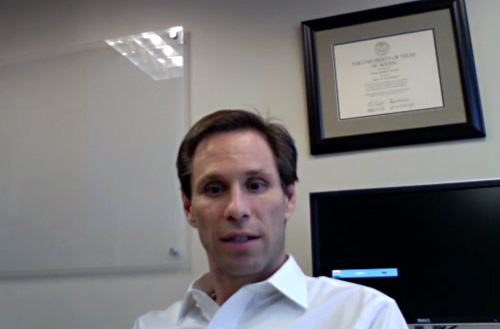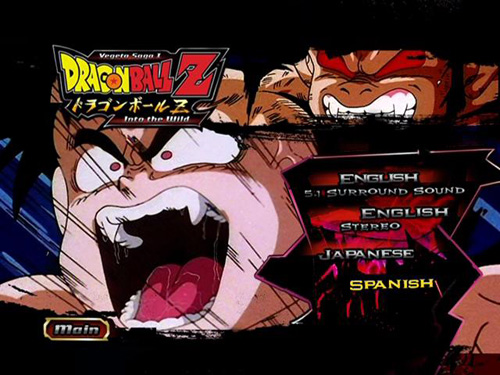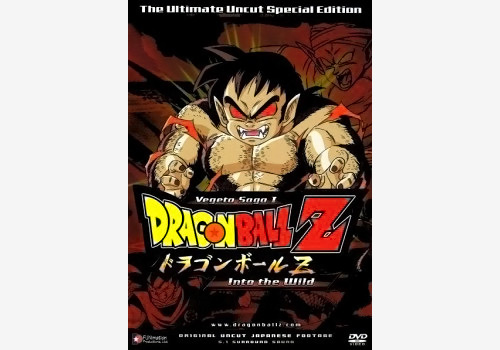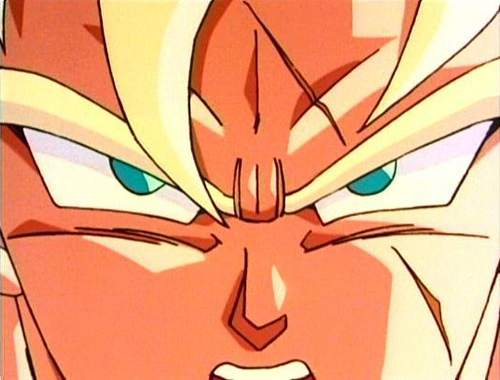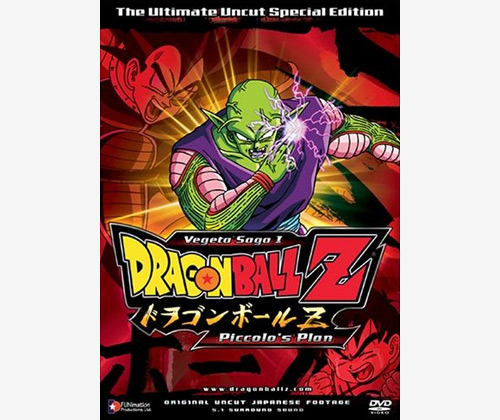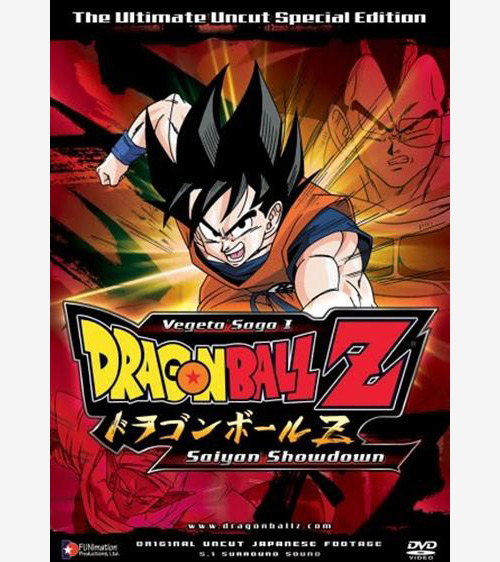Nathan Johnson Makes Waves on DBZ 2
Nathan Johnson joins me again for Part 2 of our interview about composing for Dragon Ball Z, continuing from the revealing Part 1.
How did Dragon Ball fans respond to Nathan’s new music?
What was the key to writing for DBZ?
Looking back, how does Nathan feel about the experience?
Without further ado your honor, let’s proceed to the interview.
The Fans Respond to New DBZ Music
Derek: I want to ask you about the fan reaction, because when you look up your music on YouTube you will see those videos where people have taken the music, where this is an unreleased track from Nathan Johnson, it doesn’t have a name, like #1 or #2. There are a lot of positive comments like, “Wow, this is great. I like this more than Faulconer Productions.” Or, “It’s so cinematic, why didn’t they make the rest of the series like this?” They wish they could find more.
But was that always the case? Was it always so positive? How did fans respond when the episodes first aired?
Nathan: It was NOT always so positive.
I gotta admit it, I was fairly green and it hurt my feelings a little bit. I was working hard and believed I was making the show a better show. That is what I set out to do and I was frustrated that the fans didn’t agree.
Derek: Hahaha. Wow.
Nathan: If he reacts that strongly to something, even if he hated it, man I got to that guy and it evoked that strong of a response. I was sure that if he hated it that much there were going to be people out there who really, really liked it.
Then I never looked at another comment for probably a year. I was at peace and went back to work.
It was a long time before I looked again and I think it was Neal who said, “Hey Nathan, somebody said they liked your music.” “Great!” Haha. After a while I received a couple positive emails.
It took a while for the fans… you know, they loved Faulconer’s music and then FUNimation changed it on them and they were mad. I don’t blame them, but eventually just as I had to get used to the show, they had to get used to my music, and we understood eachother and they started to applaud it.
Derek: Why do you think there was so much antagonism during the beginning? Was it just because they had these opinions, grown up with Faulconer for a few years, and that just means anything aside from that is outright dreck, or were there technical reasons? Did they give you any reasons why, or was it just strong opinions?
Nathan: I have to call on memory here. I think part of it was people don’t like the rug being pulled from under them. Part of it was some of the music was dreck, particularly in the early episodes. I hope that isn’t true, but that could be the case.
Technical reasons? They might have been more accustomed to the Faulconer style of scoring, but the particular sounds he was using were purely synthetic sounds with a lot of pads, you know what I mean? While I’d use the distortion pedal on a cello, distorted string sections, trumpets coming out, somebody playing the flute, it was a whole different flavor and I think they were shocked.
Derek: Right, I would be shocked too if somebody put the two next to one another, I’d say they were totally different. But still, I think a big part of it is that as a member of the audience watching DBZ at home you have no idea that the music staff is firstly going to change, and secondly what the producers are thinking, what is their goal, their aim they’re trying to achieve. It was the same thing with Mark from GT and for you as a composer. The audience has no idea. So I think that’s a BIG cause of the antagonism, or in some cases outright hatred against the different types of music throughout the series.
And it’s not just your music, people take sides on all of them. It’s all Faulconer Productions, or it’s all the original 2 seasons of Shuki Levy, or they have to go with the Japanese original, Shunsuke Kikuchi. It’s a very divisive issue. You take that divisive issue and cut off all communication so that the fans don’t know what it is going on behind the scenes and it leads to a lot of frustration, which leads to hatred, and as you know from watching Star Wars, hatred leads to the dark side. It’s a very bad thing.
But I think where you have interviews like this where you can see the humanity behind the show that you’re finally able to gain a real understanding and let go of those previous notions that were getting in the way. From that you gain a broader mind, a little bit of compassion and maybe even a little bit of regret for holding onto those concepts. It helps you change as a person.
I really appreciate you taking the time to speak with me about these things because it gives fans a perspective they’ve never had before because all of that stuff was prohibited, we didn’t know what was going on behind the scenes.
Nathan: I appreciate that.
Derek: For some reason FUNimation doesn’t seem to want to release official albums of the DBZ music, except for with Faulconer Productions. Fans want to know, is there a way they can get access to your music? Since there are no albums, what are they supposed to do?
Nathan: I’ve had several fans find me by email and ask if they can have stuff. One of the consequences of being a FUNimation employee when I did the episodes, and even the films which were contract to hire, I don’t own the rights to those, so I don’t have any control legally. Even if I could find the files, I would be breaking copyright law to deliver them.
I think that as a composer sometimes I was a little too attentive to what was on the screen. That pretty much destroyed the musical structure. So you might hear an 18 second sequence and just love it. “Wow that is the greatest music I’ve ever heard, I want to hear that track.” When you reach 18 seconds, somebody walks down a hallway, something blows up, then there’s a joke, and so on. If I could create an album of complete tracks it might work, but I don’t think you could take tracks from the episode and make an album out of it. And I suppose that’s my fault for being too literal sometimes.
Derek: I understand you wouldn’t be able to get past copyright laws. It must be really difficult when you see the scenes on the screen and you hear the voices, you have to make that emotional and dramatic. You’re helping tell the story, right?
Nathan: I hope so.
Derek: It’s completely understandable why you would do that then, because you’re scoring the picture.
Nathan: The whole nature of Dragon Ball Z, it moves very quickly. It’s difficult to establish something that would carry on. There were sections where I probably had rhythmic sections that are worthwhile, I don’t know.
I don’t know if it’s possible. I doubt it is though. I do know that somehow a lot of people have figured out ways to rip the music off of DVD’s and post it on YouTube.
Connecting with Dragon Ball
Nathan: I’m not sure what it was for a lot of fans to start connecting to me, but there was one thing that allowed me to start connecting to this show. Gohan helped me get into the show, because I have young kids and I found that any scene… As a father to young boys at the time, Gohan evoked an emotional response for me, whether it was his relationship with his dad, mom or piccolo, on his own, getting turned into a monkey. These things appealed to me early on and he brought me into the show.
Just like you were talking about the fans getting to know you on a human level, Gohan humanized the whole show for me. The show that is about blowing things up.
Derek: Wow, that’s fascinating because a lot of people say that Dragon Ball has a reputation for being the “#1 action anime of all time,” and it is that, but there’s really more to it, there’s a story, characters, they grow and change and evolve. It’s hard to see that at first glance, if you just watch an episode you’ll be like, “Wow, that’s really cool, all these things are exploding and these martial artists are all buff.” But it takes a while to understand the characters, their rationale and who they are and what they’re trying to achieve, and then you empathize with them, relate and see how it connects with your own life.
Nathan: That’s right.
Opening New Doors, Closing Others
Derek: How did completing the DBZ soundtrack affect your career at the time? Did it open up any new doors?
Nathan: The idea I had was that it would open doors to several other series or films. Initially, Barry Watson went off and formed a company called Illumitoon and I was working on some things for him. I think Mark Menza was too, and Dave Moran. For a while it looked like I was going to be crazy busy and I was thinking about hiring a composer, building a studio like the big guys did, Faulconer and Menza.
And then the whole market blew up. Now the guys who were firmly in score to picture like Faulconer and Menza and others, I think they weathered it fairly well. I was still at the time an up and comer. Not particularly aggressive. So the doors opened and closed fairly quickly when DVD profits nosedived, which was right about the time I was wrapping up my DBZ efforts. A lot of companies were cutting music departments, firing composers and going out of business.
It occurred to me one day that my score to picture well would dry out. I immediately landed an advertising gig, and I don’t really like advertising. I have friends who do great jobs at it, so my attitude was to have them do it. I don’t want to do it, so take it off my hands.
There were several film companies starting up and they had all seen my DBZ episodes and loved it. Well they didn’t all love it. Some of them did! I had friends in the production industry, they had big plans, scripts in place, hedge funds from outside, and it was going to be this great production company out of Dallas, Texas. Twenty films slated, and the works.
I had to do that, but I didn’t like it. I didn’t quit being a lawyer so I could write music for television commercials. I mean no disparaging remarks to television commercial writers, they work hard and are disciplined, it’s just not what I wanted to do.
When looking for work and other areas dried up, I knew had a law degree and I wanted to preserve my artistic integrity more, ironically, by walking away from it.
Derek: So now you’re back in law?
Nathan: I’m a lawyer full time. I miss the artistic side of the work, it was exciting for me.
Derek: You’re still an artist in your heart, though. You still love music, I imagine. Is there a part of you that wants to go back and do score to picture?
Nathan: Maybe. While I was a lawyer part time I had some contacts in LA that wanted me to do some more music for them, I was trying to do it on nights and weekends and it was terrible. To be an artist, particularly one who comes into the profession quite late as I did, it requires your full attention. I composed music for my kids to play, even writing that stuff requires your full attention.
There may be a time in the future where I take down my law degree and replace it with my music. That might happen.
Looking Back on DBZ
Derek: Looking back, what were the biggest challenges in developing Dragon Ball Z’s music?
Nathan: I think the biggest challenge to me was understanding the show. The second thing was the time crunch. There are certain composers who are skilled at cranking stuff out very quickly, whether there was urgency or not, and I was not one of those composers. I wrote good music when I really liked what was happening on screen. If I didn’t like it, or didn’t understand it, it was quite difficult. And then Barry would call and say, “We need it by Thursday.”
Derek: Haha.
Nathan:
All those things made it quite difficult, particularly early on. The further we got into the series the easier it got, of course then the pace accelerated as well. In the later parts of the episode I don’t even want to say how many we were doing a week. The faster it got, the faster I had to go, so it was always difficult.
When it really got fun for me was towards the end of my DBZ run where I was doing the movies. I had already done all these episodes, I had found my voice, I knew my tools and software, I knew the characters and had the time. It was more satisfying to write the music for those.
Derek: I understand. Because it was so hard, did you change or grow as a person from working on the DBZ soundtrack. I imagine trying to juggle all those things at once, and you have a family with young children, that has to be very tough.
Nathan: Yeah, we all hope we grow through every experience. No doubt I did a bit. I think it was very humbling, really. In order to be as good as you want to be, you’ve got to recognize how far you have to go. So for me the growth was recognizing that as good as I might have thought I was the day before I started, I had a hard time writing good music quickly. It was kind of a reassessment of your own skills and how hard you need to work. I think it helped me develop a better sense of personal honesty about my own work, a more critical eye, and the discipline to extract creativity.
To bring that to life you have to work very, very hard. You need discipline. I do think that having to do that amount of work in that amount of time helped me to develop a sense of humor and discipline that allowed me to produce at a level that was necessary.
Derek: Absolutely. It’s the path of an artist.
Nathan: Maybe the more talented ones don’t have to follow such a path.
Derek: Well, I don’t know of anybody who follows an artistic path where it’s easy. That’s why they call it a passion, it’s what you suffer for.
So it has been 9 years since you started working on the project. Looking back, was it a positive experience?
Nathan: Yes. … Yes. I think we all look back and think, “That time I was in Tehran and held hostage for a year was a positive experience because I’m stronger.”
Derek: Haha.
Nathan: I don’t think I’m looking back with rose colored glasses because there were a lot of difficult moments, personally and professionally, through working on the series and other series.
Derek: At this time point in time is there anything you’d like to say to your fans and your haters.
Nathan: Yeah. Reward the production of shows that have original score. Demand it. You’ll get better shows, better entertainment, you’ll feel better about it, and it raises the integrity of the whole profession. With the increase in DVD piracy and collapse of profits, my message to fans and haters alike is to insist on original score to picture. Everything will be better.
Businesses think they’ll make more money by using canned music, precomposed music that didn’t have this show in mind, and it’s not true. You can reward them by buying the shows and watching the shows that have original music and we’ll all be better for it.
Derek: Were there any regrets?
Nathan: One little regret. I think it was early on.
I still wished they had used that title sequence. I wished they had recorded it with someone singing it other than me.
Derek: Wait, you sang on it?
Nathan: Well we had to make a demo of it. I used my best death metal voice. There were some voice over actresses at the studio and I pulled some of them in and had them sing harmonies in the back. It was a lot of fun and would have been nice to see on the show.
Derek:Right, well because it didn’t and it never officially licensed or anything, do you still have it? Is it possible you could share on YouTube and share with fans?
Nathan: They still own it. If they gave permission I’d have to think about whether I’m willing to allow my singing voice to be heard.
Derek: Haha. Well, I completely understand.
For the Fans
http://www.youtube.com/watch?v=-fbbRbO3d7g
Derek: You were not a fan of Dragon Ball Z when you got the job. When you finished the job, had you become a fan?
Nathan: I think I would say I became an admirer. Because I was angry at first, to make music for all this stuff blowing up. By the end of it I remember saying to my wife, “Actually, I kind of like this.” She said, “What did you say?!” I had gotten to know the characters, the themes and style, and I think I understood better what they were trying to do. It never became something I would like to go rent and watch, but I had a completely new appreciation for what it was, what it did for people. Then again, I don’t want much TV anyway, but I became an admirer for the show. Sometimes I even liked to watch it.
Derek: Haha. Okay. So what are your thoughts on the Dragon Ball fandom. It’s still so huge and so big that can people CAN take sides, fight against each other and debate on all the issues, including the music. They just announced a new movie coming out in Japan next year and it’s still very much alive. What are your thoughts about that?
Nathan: I think that’s a testament to the depth of the show, that there’s so much cultural material embedded in it. That people can really delve deeply into and develop very strong feelings about it. And it’s not a political issue.
Derek: That’s a profound statement.
Nathan: Maybe. And there are very few forms of entertainment that allow that to happen, and maybe that’s why people love it so much. I like that it has such a strong effect on people because I see how much they continue to enjoy it.
A lot of people got hooked on Dragon Ball Z when they were in their teens. I was at a business dinner and I met people wearing fancy clothes in an expensive restaurant. One of the people there was in his mid-30’s, maybe early 40’s, and he was a DBZ fan. He found out I was Nathan Johnson and he flipped out! He started listing off all the music I had done, and his wife said he went home that night and dug ‘em all out of his shelves and watched them all. He was really excited to meet somebody associated with the show. She said it perked him up for a long time. He had forgotten how much he liked the show.
Derek: Haha, that’s a great story, yeah.
Nathan: Anything that gets people that excited, brings them out, talking and doing things together, I think is good.
Derek: Excellent. Well that’s great.
The Business of Art
Derek: What advice would you give to young fans of your music who grew up with the series and now want to get involved in music?
Nathan: I would say if you want to get involved with music professionally, and you as an artist know this, you need to have a broad base if you’re not inherently wealthy or plan to do it part time on the side, which usually results in nothing. I would say focus on versatility. You might be a mixing engineer, a guitar player, a composer, a producer.
I would use music as a launching point into the entertainment industry, if you love music. If you wind up in music, it’s because you’re really good or lucky, or both, and if you’re successful at it it’s because you’re both. But if you love music you probably love other forms of entertainment, craft and art. If music is seriously what’s drawing you right now, follow that through. See how it relates to other things in the entertainment industry, because the music can vary and the industry can be difficult. It seems to be getting harder, not easier.
I would stay stick with the art, but keep in mind that you have a life to lead. Your music will be a great expression and satisfying for a while, but at some point you may get tired of it, in fact you might find that you’re no longer inspired. People who write music or anything else that they do, day in and day out in life, how obligated you are also as an employee to yourself in a business sense.
Derek: You need to treat your art as a business, right?
Nathan: Yeah, the people I know who are very successful in music treat their art as a business and are still having fun with their art, but they’ve also been sitting at a computer for 12 years. Mark Menza and Bruce Faulconer started on it young. There’s your advice. Start on it young. Get good by the time you’re 22. I really got going when I was in my late 20’s.
Closing Remarks
Derek: Any closing remarks to all the Dragon Ball Z fans out there?
Nathan:
There is nothing more gratifying then working hard to provide something artistic, or to help the show come to life, and finding out that it really did help the show come to life. I think that’s the most rewarding thing in the process. Finding out that the fans did come around to it and really enjoyed it, and also that I learned how to play on the ocarina.
Derek: Haha. Well that’s great. Thank you very much Nathan, this was eye opening. It answered a lot of mysteries, a lot of questions that fans just didn’t know, now they have answers to them. I think that’s going to bring a lot of closure to people who were just confused, you know? It was great. You provided some excellent stories, it was entertaining, and even inspiring. Thank you again for the excellent interview.
Nathan: Thank you for taking the time to talk. I think your questions were excellent and they helped me remember this period of my life quite fondly.
Derek:That’s great to hear. Maybe it was even a cathartic experience to get some things off your chest that you hadn’t been able to express all these years.
Nathan: I hadn’t talked about it in a long time. Looking back now with perspective I think it does help you put the pieces of your life in place if you have the occasion to do it. So thank you for the occasion to do it.
Derek: Thank you, Nathan, this was enjoyable and I learned a lot.
Nathan: I’ve enjoyed talking with you. I look forward to reading your blog and your book.
Derek: Thank you very much. Bye.
Nathan: Bye bye.
Case Closed
http://www.youtube.com/watch?v=4-CeMa25ACc
That’s the end of our interview with Nathan Johnson, and what an enlightening and thought provoking interview it was.
Nathan was hand picked by FUNimation producers to score Dragon Ball Z. He had a hard time producing high quality music at a rapid pace, and even when he did, the fans were still upset. That’s a hard combination to endure, but Nathan went the distance and finished all the projects on his plate.
What will Nathan’s legacy on Dragon Ball Z be?
How do you think his music will be remembered?
' . $comment->comment_content . '
'; } } else { echo 'No comments found.'; }